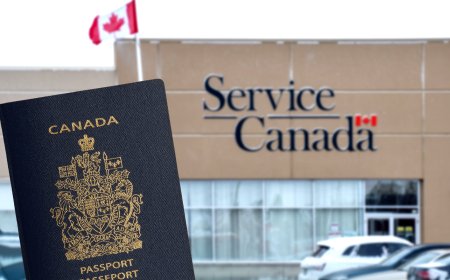Saskatchewan Unveils Two New PNP Pathways: Are You Eligible?
Saskatchewan launches new PNP pathways for skilled workers in health care and agriculture, addressing labor shortages and supporting economic growth.

On August 30, the Government of Saskatchewan introduced two new Provincial Nominee Program (PNP) pathways under the Saskatchewan Immigrant Nominee Program (SINP). These new pathways are specifically designed for newcomers in health care and agriculture sectors.
Jeremy Harrison, Saskatchewan’s Immigration and Career Training Minister, highlighted the significance of these new pathways. He stated that these initiatives align with the province's current immigration needs, addressing labor shortages that are being experienced nationwide.
“With labor shortages across the country, creating new provincial immigration pathways and streamlining the credential recognition process will help Saskatchewan employers acquire the workforce they need to expand their businesses,” Harrison explained.
Agriculture Talent Pathway
The Agriculture Talent Pathway is designed to address the labor shortages in Saskatchewan's agriculture industry, helping fill in-demand and emerging roles. Agriculture remains a key sector of the province's economy, with exports exceeding $3.2 billion in key crop product sectors in 2023.
To qualify for this stream, candidates must meet the following criteria:
- Achieve a Canadian Language Benchmark (CLB) score of at least 4 (some employers or regulators may require higher scores).
- Have completed secondary school (high school) or higher education.
- Possess at least one year of full-time work experience in their intended occupation within the past three years, or six months (780 hours) of full-time work experience with the employer who issued their Job Approval Letter.
- Demonstrate their intent to work and reside in Saskatchewan.
- Have a permanent, full-time job offer in Saskatchewan's agricultural sector.
Applicants will need a valid SINP Job Approval Letter, which is obtained by their employer who must be registered with the SINP.
Health Talent Pathway
The Health Talent Pathway supports Saskatchewan's Health Human Resources (HHR) action plan, consolidating all health care recruitment through the SINP under a single stream. This pathway is open to candidates with varying eligibility criteria depending on whether they have a profile in the federal Express Entry pool.
General requirements for this pathway include:
- Eligibility for Saskatchewan licensing (if applicable to their occupation).
- A post-secondary education related to the job offer (bachelor’s or master’s degree, or a diploma requiring at least two years of study).
- Commitment to living and working in Saskatchewan.
For those not eligible for Express Entry, additional requirements include:
- A language score of at least CLB 5 in English and/or French (some employers or regulators may require higher scores).
- If currently employed in Saskatchewan: Six months (780 hours) of full-time work experience with the employer who issued their Job Approval Letter.
Candidates with profiles in the Express Entry pool must:
- Have a valid Express Entry Profile Number and Job Seeker Code.
- Achieve a CLB score of 7 or higher in English and/or French.
- Have one year of high-skilled work experience in the past five years in their intended occupation.
About the SINP
In 2023, Saskatchewan welcomed 7,350 newcomers through the SINP, and in 2024, the province received an allocation of 8,000 nominations from Immigration Refugees and Citizenship Canada. Saskatchewan anticipates nearly 20,000 newcomers to arrive by the end of 2025, with the allocation rising to 8,500.
The province continues to grow in popularity among newcomers due to its lower cost of living, affordable housing compared to other major Canadian cities, and incentives like the Graduate Retention Program. This program offers eligible graduates (including international students) a refund of up to $20,000 in tuition fees if they live and file taxes in Saskatchewan.
What's Your Reaction?
 Like
0
Like
0
 Dislike
0
Dislike
0
 Love
0
Love
0
 Funny
0
Funny
0
 Angry
0
Angry
0
 Sad
0
Sad
0
 Wow
0
Wow
0






































































